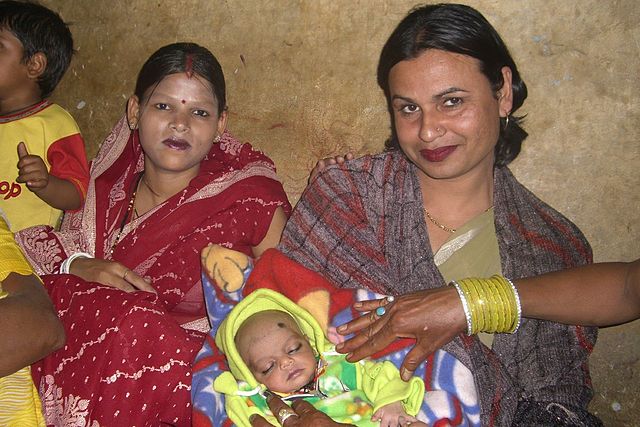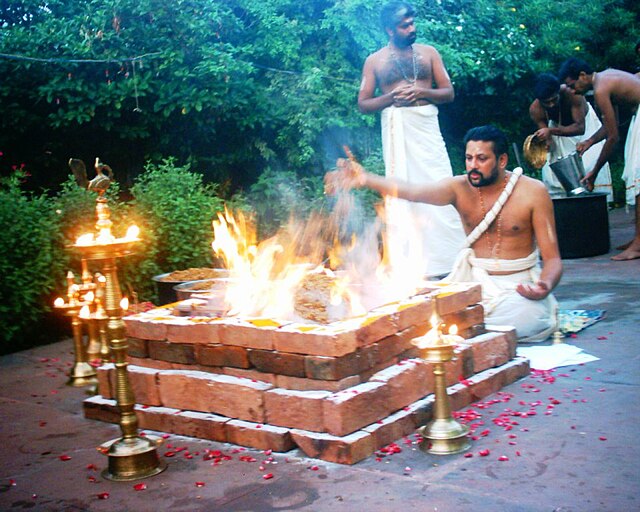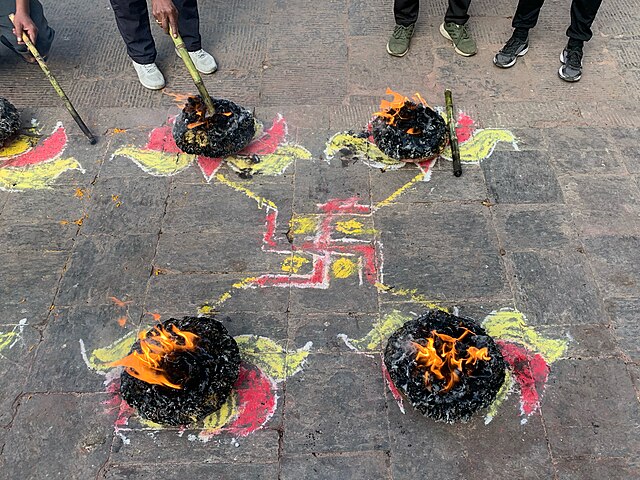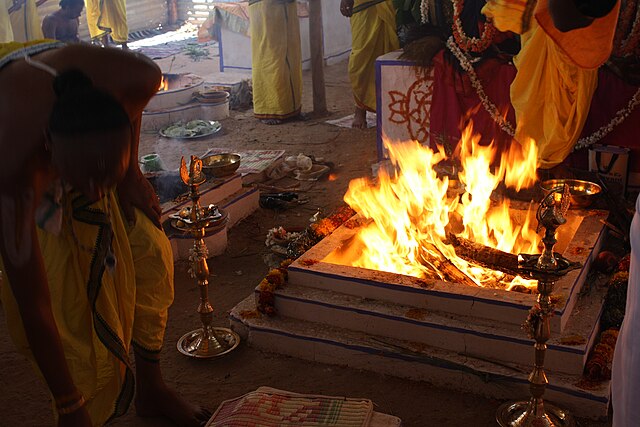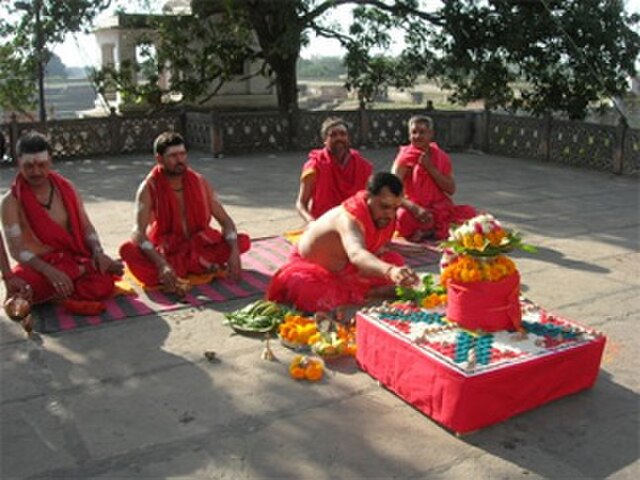Samskara (rite of passage)
Samskara are sacraments in Hinduism and other Indian religions, described in ancient Sanskrit texts, as well as a concept in the karma theory of Indian philosophies. The word literally means "putting together, making perfect, getting ready, to prepare", or "a sacred or sanctifying ceremony" in ancient Sanskrit and Pali texts of India.
Samskaras are, in one context, the diverse rites of passage of a human being from conception to cremation, signifying milestones in an individual's journey of life in Hinduism. Above is annaprashana samskara celebrating a baby's first taste of solid food.
A new born's Namakarana ceremony. The grandmother is whispering the name into the baby's ear, while friends and family watch.
Annaprashanam is the rite of passage where the baby is fed solid food for the first time. The ritual has regional names, such as Choroonu in Kerala.
A baby's first haircut is called choulam samskara.
Yajna in Hinduism refers to any ritual done in front of a sacred fire, often with mantras. Yajna has been a Vedic tradition, described in a layer of Vedic literature called Brahmanas, as well as Yajurveda. The tradition has evolved from offering oblations and libations into sacred fire to symbolic offerings in the presence of sacred fire (Agni).
A yajna being performed by Nambudiris of Kerala
A mandala for yajna in Kumbheshwar Temple in Nepal
Priests performing Vedic yajña at Vishnu Kunda in Thirumakudalu Narasipura
Old Durga Mandir, Banaras




